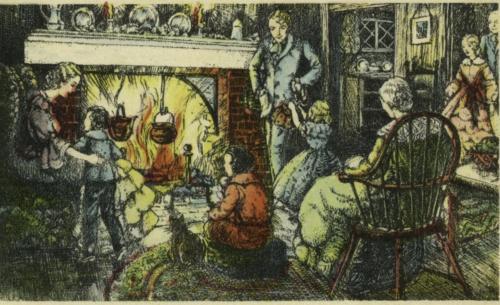“At this time of the year–the Christmas and New Year time–I am seldom out of my Castle. For the associations of the season seem to hold me there, and the precepts of the season seem to teach me that it is well to be there.”
Charles Dickens, in ‘The Poor Relation’s Story’
It is in our power to make our home be a castle. No one else can do it for us.
Common usage has reduced the term ‘invest’ to what we do with our money. But our main resource–which we can squander without reflection–is the attention of our heart. We all invest ourselves, somewhere, by our time, attention, and presence.
A castle is a home in which parents–both parents–are invested. And where their hearts are, so will their children’s be.
This time of the year seems designed for home-investment. The associations of the season, and indeed the precepts of the season, pull us to the hearth; to one another.
It is not easy. Our images of a peaceful, joyful hearth can be jolted by the vicissitudes and realities of daily life: disagreements, hurt, financial worries, ill health. No one ever said that a castle is free from strife and pain. But it is a place where these can be integrated, and overcome, or at least made bearable.
It will take effort; but we can strive so to arrange things, and so to receive what life offers us this time of year, that one day the description of post-conversion Ebeneezer Scrooge might be applied to us: “…and it was always said of him, that he knew how to keep Christmas well, if any man alive possessed the knowledge.”
Charles Dickens (1812-1870) is the English novelist about whom G.K. Chesterton wrote a book titled Charles Dickens, The Last of the Great Men.
NOTE: The Series Reclaiming Manners will continue next week.
Originally posted at Bacon from Acorns








